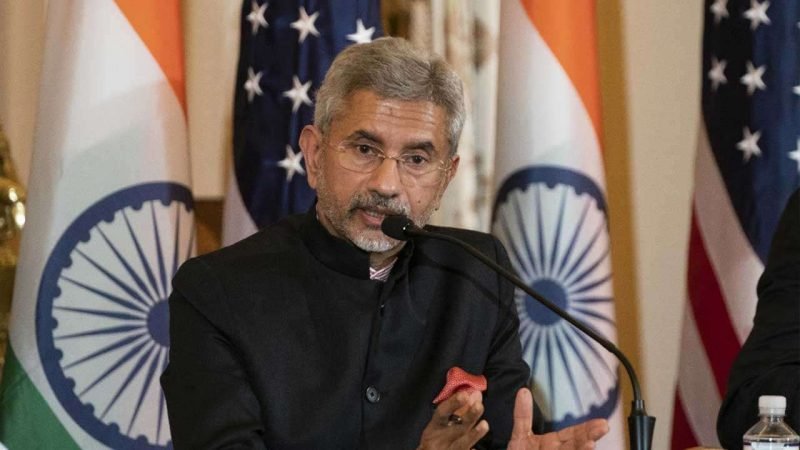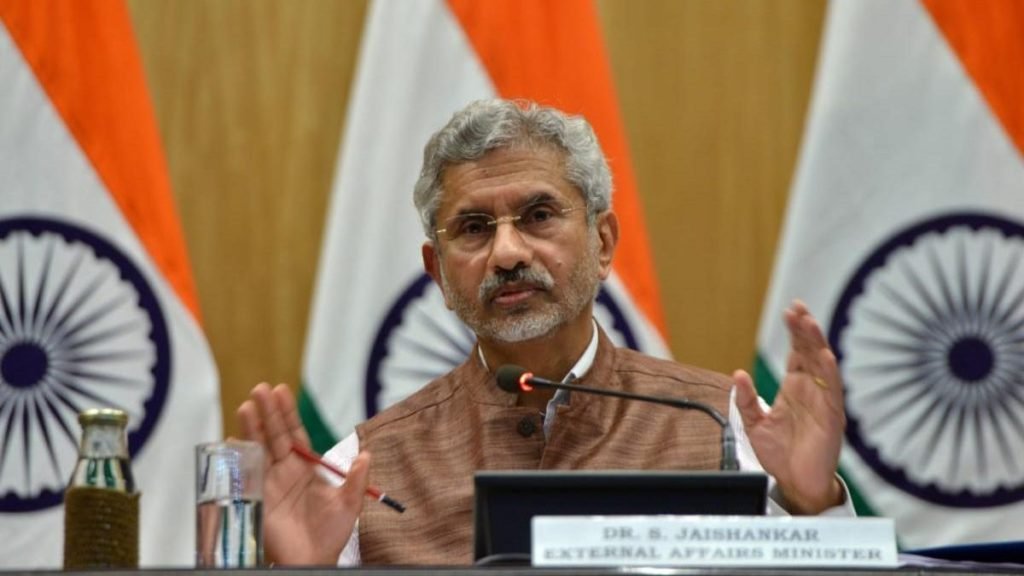Address by EAM Jaishankar at UNSC open debate on the implementation of resolution 2532

India’s External Affairs Minister S Jaishankar took part and addressed the United Nations Security Council (UNSC) today in an open discussion on “Implementation of Resolution 2532 (2020).” Jaishankar will talk with respect to Resolution 2532 (2020), which was received by the Security Council on July 1, 2020. Resolution 2532 had focused on the worry about the overwhelming effect of the COVID-19 pandemic across the world, particularly in nations desolated by armed conflicts, or in post-conflict circumstances, or influenced by humanitarian crisis.
India’s External Affairs Minister S Jaishankar while addressing the UNSC open debate stated that as we evaluate the effect of the pandemic and the possibilities of recuperation, including through the accessibility of antibodies, there are five worries that India might want to share:
One, the absence of worldwide coordination in regards to vaccine distribution will hit conflict-affected areas and poorer nations the hardest. The ICRC estimated that more than 60 million individuals in such regions are at risk. Two, there as of now exists a glaring difference in the availability of antibodies internationally. Accessibility of covid-19 vaccines is important for moderating the effect of the pandemic. Three, this dissimilarity calls for collaboration within the framework of COVAX, which is attempting to get sufficient antibody portions for the world’s underdeveloped nations. Four, from a financial angle, the expenses of equitable vaccine distribution are really enormous. The International Chamber of Commerce predicts that the worldwide economy stands to lose at least US$9.2 trillion if the international community neglects to address immunization disparity. Furthermore, five, routine inoculation programs have been thrown into disarray. Because of the pandemic, around 80 million children in at least 68 nations are in danger of diphtheria, measles, and polio.
Furthermore, India’s EAM Jaishankar put forward nine points to tackle the pandemic which are given below:
i. Persist with the vaccination drive, along with other public health measures, to slow down the virus’s ability to infect new people and mutate further.
ii. Collaborate with each other on genomic surveillance to track virus mutations and variants and exchange information in this regard in a regular and timely fashion.
iii. Effectively address public resistance to vaccines. Vaccine-related information must be contextual, empathetic, and culturally sensitive, while providing scientific and accurate facts to allay the fears and concerns of the public.
iv. Improve public health infrastructure and build capacity through effective training programmes in vaccine delivery, especially in areas where health infrastructure is weak.
v. Stop ‘Vaccine nationalism’; indeed, actively encourage internationalism. Hoarding superfluous doses will defeat our efforts towards attaining collective health security.
vi. Strengthen the COVAX facility to ensure equitable distribution of vaccines to all in a fair and equitable manner.
vii. Urgently resume immunization programs across the world before children’s lives are threatened by other diseases. We simply cannot trade one health crisis for another.
viii. Stop disinformation campaigns taking advantage of this pandemic to advance their nefarious objectives and activities.
ix. Proactively prepare for the next global pandemic by focusing on improving capacities, developing protocols, and building a knowledge base and expertise.

While addressing the President of the UNSC, India’s EAM Jaishankar went on to state, “India has been particularly at the cutting edge of this worldwide battle against COVID-19 pandemic. We had before given critical medicines, diagnostic kits, ventilators and PPEs to more than 150 nations, around 80 of them on a grant basis. Today, the pharmacy of the world is venturing forward to meet the worldwide immunizations challenge. Two antibodies, including one indigenously developed, have just been granted emergency authorization. Additionally, as many as 30 candidates are under various stages of development.”
In one of the biggest immunization drives ever, India itself will inoculate around 300 million frontline and healthcare workers, elderly and vulnerable over the course of the following six months. Our immunization program, which has started a month back, has just seen almost 7 million individuals inoculated.
Under the initiative of Vaccine Maitri, which translates into Vaccine Friendship, India gives immunizations to the world. We are, obviously, a huge cause of supply to the COVAX facility. However, furthermore, India is additionally directly sending vaccines to our friends and partners. Beginning with our immediate neighbors, 25 countries across the world have just gotten Made in India immunizations. 49 additional nations will be provided in the coming days, going from Europe, North America, Latin America, the Caribbean to Africa, South-East Asia and the Pacific Islands. Keeping in mind the UN Peacekeepers who work in such troublesome conditions, we might want to report today an endowment of 200,000 dosages for them also. We are working effectively with GAVI, WHO and ACT Accelerator. Our commitment has likewise upheld the SAARC COVID-19 Emergency Fund.”
The EAM lastly concluded by stating an excerpt from The Bhagavad Gita “Do your work with the welfare of others always in your mind” and added that it is the spirit wherein India moves toward the COVID challenge and urged the Council to work all in all to address its various dimensions.


















